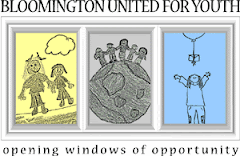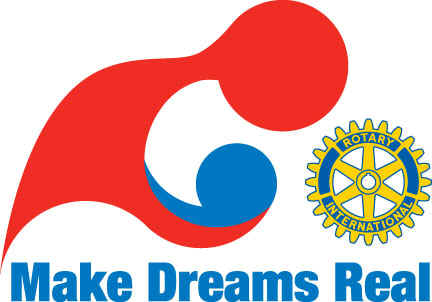Many first-time job seekers believe they haven’t done anything worth mentioning in a resume. This is not true. Any work, even unpaid work and hobbies, counts as experience. Taking the time to prepare a resume shows a prospective employer that the applicant is serious about finding a job. Highlight the connection between accomplishments and the transferable skills learned, including soft skills such as being punctual and fulfilling commitments. >Scroll down to find the template for preparing a resume.
2. Get a list of places to apply
Use a variety of sources to search for advertised job openings, for example print and online advertisements, job banks and career centers. Some occupations are not very well represented in general online job banks, so it is sometimes worth focusing on web sites that specialize in part-time employment for teens (grooveJob.com and snagajob.com) or in specific career fields. The 2009 Bloomington Job Fair will be a great place to find opportunities
3. Talk to others
Many employers don’t advertise part-time or seasonal jobs, so don’t limit the job search to official listings. Guidance counselors, teachers, parents, other family members and acquaintances may know who is looking for temporary entry-level employees. However, applying in person is often the best way of finding a job, especially in retail and hospitality. The Bloomington Job Fair will present opportunities for you to meet face to face and even interview with some employers, so come prepared.
4. Be ready to complete a job application
Some employers require candidates to fill out a form that asks about skills, education and work history. Job seekers should be prepared with the following information and those coming to the Bloomington Job Fair should bring this information with them:
- Names and addresses of previous employers (if the job seeker has prior work experience)
- Dates of employment References (can be neighbors or teachers) and their contact information
- Resume (if the job seeker has one)
- Days/hours available to work
- Contact information of the job seeker
5. Check whether there are any laws prohibiting youth from working in a particular field.
Scroll back up this screen for Minnesota and Bloomington laws. According to the Department of Labor, teens may not work in hazardous occupations.6. Prepare for the interview
Job applicants may either be interviewed on the spot when dropping off their application or some time following an application. Employers who hire teens are probably not looking for excellent qualifications and experience, but for the attitude needed to do an excellent job. Employers are impressed with applicants who show the following characteristics:
- Professional manners
- Interest in the job and the company
- Willingness to learn
- Self-confidence
Do some research about the job. Identify skills that match the job description. Review answers to common interview questions (check out list by scrolling down), think of a few questions to ask the interviewer and practice many times.
7. Make a good first impression in person
Personal grooming and attire can matter more than an answer to a particular interview question. It is not necessary to wear a suit - just look professional. Clothes and shoes should be conservative, and avoid extreme hairstyles, excessive makeup and perfume. Wear a belt. Tuck in clothes. Ditch the gum. Put away the phone. Walk confidently. Leave the hat at home. Choose another time to use slang words. Clean up the foul language. Take out your ipod earpiece or a bluetooth in your ear: they can give the impression you aren't fully attentive to them. Be aware that the first impression might be walking into the building, in the elevator or in the parking lot.
Check out this site: Dress for Successful Interview Be sure to plan your wardrobe for the Bloomington Job Fair because you may meet your future employer that day!
8. Follow up
This is perhaps the most important part of getting a job. Employers look for candidates who are ready to follow up with customers. Wait a couple of days to call the employer, and make sure to talk with the person who will be hiring. Job seekers should have a telephone answering machine or voice mail so potential employers can easily reach them. Plan ahead for what will happen when the employer calls the phone number you list on your application/resume. This will leave a strong impression on the employer. Who answers? How do they/you answer the phone? "Yo wussup?" versus "Hello, this is Bobby may I ask who is calling?" If you don't answer, what is the message they will hear? Is it classy? Do you speak clearly? What do the lyrics of the song on your message portray about your taste and class? Do you check your messages frequently? Do you have paper/pen available when you answer? Are you ready for THE CALL each time your answer the phone? It may be better to allow someone to leave a message than for you to answer at a noisy basketball game or while you're busy. If you're unable to be reached for more than 24 hours via phone/email, consider leaving a new message that explains when you may be reached. And speaking of email, what you have selected to be your email address may communicate things good-bad too. Facebook content/photos can be detrimental if it is inconsistent with the professional, classy, responsible image you are trying to portray.
9. Be persistent
First-time job seekers need to prepare mentally for whatever happens and choose to keep trying if the door doesn't open right away. Actually practice your response for being offered a position. Then practice your response for being turned down. Show maturity by saying, “Please give me a call if you need someone in the future. I’ll leave you a copy of my resume. Thanks for your time.” Don’t be discouraged. Business is about networking and although this door isn't open for you at this time, your class might be what makes them save your resume for another opening in the future. That employer might be so impressed that they will refer you to another employer. Never burn a bridge! Always say thank you for the opportunity to interview and apply because this will make the next application just a little easier.
10. Think of future goals
If interested in a career in education, why take a job as a stock clerk at the local department store? Instead, the job seeker may consider working as a summer camp instructor or in a local elementary summer-school classroom. The more career-related experience accumulated, the stronger one’s resume becomes. Job seekers should think about a career that allows for a desired lifestyle while at the same time matches the interest, ability and enthusiasm of the job seeker. Successful job seekers develop a plan to become qualified in a desired field, including the education/training and specific work experience needed.
Good luck job seekers!!!



